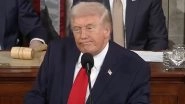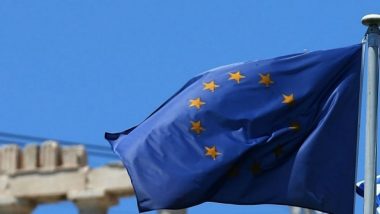The European Union polls are the second largest democratic exercise after the Lok Sabha polls in India. A total of 751 members are elected to the European Parliament, which has been directly elected since 1979. No other EU institution is directly elected, with the Council of the European Union and the European Council being only indirectly legitimated through national elections. European Union Says ‘No Solution’ Yet to Break Brexit Deadlock.
TERM OF THE HOUSE/ MEMBERS – WHEN WAS THE LAST ELECTION HAPPEN – 2014
The eight parliamentary elections for the European Union was held in 2014. It was for the first time, the European political parties fielded candidates for President of the Commission. In the 2014 elections, the European People's Party (EPP) lost ground to the Progressive Alliance of Socialists and Democrats. However, it remained the largest party in the union. In 2014 the EPP nominated Jean-Claude Juncker as its candidate for election as Commission President. Because the EPP won, Jean-Claude Juncker's nomination was supported by the European Council and he was elected by an absolute majority in the European Parliament.
WHAT ARE ELECTIONS ABOUT?
The election to the European Union Parliament was held between May 23 and 26, 2019. As of 2018, a total of 751 Members of the European Parliament (MEPs) represent more than 512 million people from 28 member states.
RESULT of 2019 ELECTIONS:
Pro-European parties are currently leading in the early trends of the ninth European Union (EU) elections on Monday. Liberals and Green parties are giving a tough fight to eurosceptic parties. The right-wing and nationalist parties are leading in Italy, Britain, France and Poland but failed to change the balance of pro-European power in EU assembly. European Union Launches Payment Mechanism to Bypass U.S.’s Iran Sanctions.
According to Reuters, provisional results showed the Socialists, Greens, liberals and conservatives with 507 of the 751 seats in the EU Parliament. As per the provisional results for the EU Parliament, the European People's Party (EPP) has emerged as the largest political grouping in the international chamber with 182 seats, although it could lose 38 seats vis-a-vis what it had after the 2014 election.
In the United Kingdom, Nigel Farage’s Brexit Party won a resounding victory. The Europe of Freedom and Democracy group headed by the British UKIP of Farage won 29 seats. The Left grouping will lose 13 seats, leaving it with just 39 lawmakers in the new Eurochamber. European Union Unveils Ethics Guidelines for Artificial Intelligence.
Farage campaigned for Brexit. His resounding victory shows that the English still want to leave the EU. Following a referendum held on June 23, 2016, in which 51.9 percent of those voting supported leaving the EU, the Government invoked Article 50 of the Treaty on European Union, starting a two-year process which was due to conclude with the UK's exit on March 29, 2019. However, this deadline has been extended to October 31, 2019.
EUROSCEPTIC PARTIES IN DIFFERENT EUROPEAN COUNTRIES:
Other Eurosceptic parties include, Austria’s Freiheitliche Partei Österreichs, Belgium’s Vlaams Belang, Union of Communists in Bulgaria, and NFSB of Bulgaria. In France, Right-wing Eurosceptic parties include the Gaullist Debout la République, and Mouvement pour la France, while in Germany Alternative for Germany is the country’s largest Eurosceptic party.
(The above story first appeared on LatestLY on May 27, 2019 08:07 PM IST. For more news and updates on politics, world, sports, entertainment and lifestyle, log on to our website latestly.com).













 Quickly
Quickly


